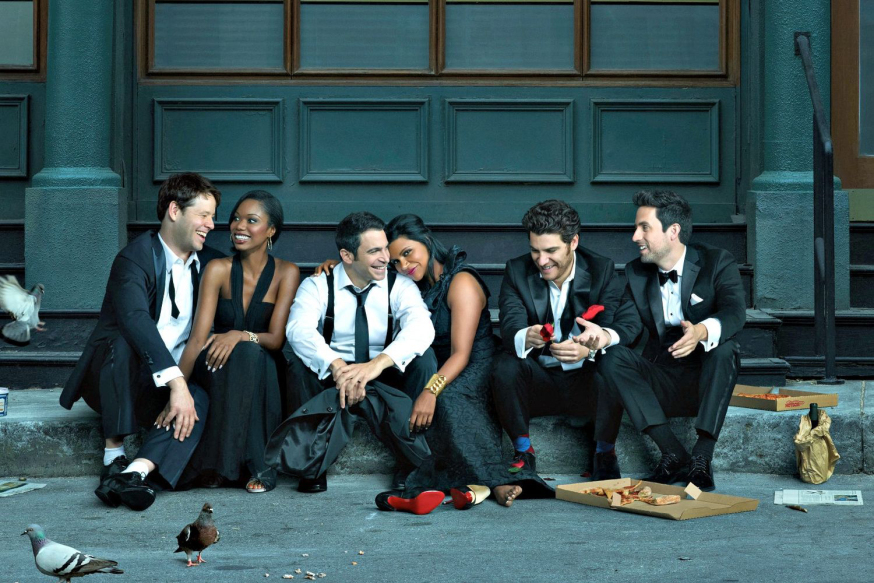Hollywood Sours on Divorce and Embraces the Family
by Fr Richard Heilman | September 6, 2016 1:51 PM
FROM PHILLIPKOSLOSKI.COM[1] …
Perhaps a new generation of writers and producers, having grown up in divorced households, is expressing what their own hearts desired
When Mrs. Doubtfire received a letter from a concerned child asking about how she could get her parents back together, the fake nanny responds by saying, “There are all sorts of different families … but if there’s love, dear, those are the ties that bind. And you’ll have a family in your heart forever.”
While the film’s premise revolves around a man trying to make things right with his wife and kids, its end note suggests that a united family doesn’t matter anymore. Divorced or separated parents are a fact of life, and the children living through it should be content with love in whatever form it takes.
Mrs. Doubtfire was not alone in propagating this belief; many television shows and movies of recent decades have portrayed divorce as a relatively positive “new normal.”
So it is surprising, and heartening, to read about how Americans are suddenly changing their minds about divorce, and to observe a media-reversal of the “new normal” narrative. Storytellers are beginning to show the harsh reality of divorce, and imagining reconciliation. Perhaps a new generation of writers and producers, having grown up in divorced households and observed its difficulties firsthand, is expressing what their own hearts desired: reunited parents and familial wholeness.
Sweet Home Alabama (2002) may have been a precursor to the trend. The main characters had been estranged for seven years, and their romance is rekindled when the divorce papers were introduced. The “feel-good” romcom portrays the couple’s reunion as a return to how it should have been. The couple is even seen before the closing credits finally starting a family.
Then came Mr. Popper’s Penguins (2011). While admittedly not a successful film, it revolves around divorced parents who reunite through their shared love of penguins. It reiterates the theme of a united family as the goal and desire of everyone involved.
On the other hand, recent movies like Up (2009) portray the harsh reality of divorce; the audience feels a child’s pain and comes to resent his absentee father on the boy’s behalf. The innocence of the boy and his desire to get his dad back is heartbreaking to behold, and he is finally given consolation (and validation) by the powerful father figure of the “adopted” grandpa. In the end, the harmful consequences of divorce are seen all too clearly.
On television, NBC’s Parenthood (2010-2015) showed the struggles of spouses who became estranged for a time, on the brink of signing divorce papers.
In particular, near the end of the series it focused on the family of Joel and Julia and how their career commitments negatively impacted their relationship. It seemed like divorce was going to be a reality but, thanks to the insistence and advice of Julia’s father Zeek, Joel finally fought for the heart of Julia and their love was rekindled. They learned from the experience, most importantly to fight for their marriage. The television drama didn’t hide the pain their children were going through and how they resisted the idea of a divided home.
Most recently there have been hints of romance and eventual return in shows such as Grandfathered (2015-present), Nashville (2012-present) and even The Mindy Project (2012-present), where a united family is shown as the ideal and parental separations to be avoided when possible, especially when children are involved.
This all reflects what Pope Francis has written about in Amoris Laetitia and how, “Children not only want their parents to love one another, but also to be faithful and remain together. These and similar signs show that it is in the very nature of conjugal love to be definitive. The lasting union expressed by the marriage vows is more than a formality or a traditional formula; it is rooted in the natural inclinations of the human person” (123).
Continue reading at PhillipKosloski.com[2]

- PHILLIPKOSLOSKI.COM: http://aleteia.org/2016/04/26/hollywood-sours-on-divorce-and-embraces-the-family/
- PhillipKosloski.com: http://aleteia.org/2016/04/26/hollywood-sours-on-divorce-and-embraces-the-family/
Source URL: https://usgraceforce.com/6999-2/